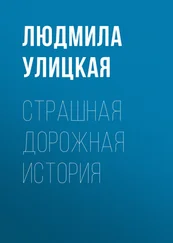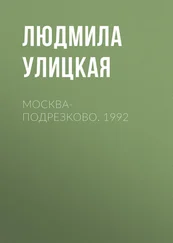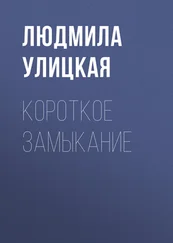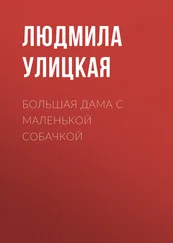Anelya was already past forty, and Lado was ten years or so older. Their bloom had faded, their skin withered, and they were preparing themselves for a peaceful old age, not the lifestyle of young parents. The old age they had anticipated never came to pass. It took time to bring the neglected children around, and then the war began. Lado did not survive the rigors of the times and died of pneumonia in 1943.
Anelya set the children on their feet by realizing the assets of a once-prosperous household. She died in 1957, shortly after the return from exile of Susanna, who was by now completely demented. Nina was a young woman by then, and had a much loved stepmother replaced by her natural mother, a one-eyed harpy full of spite and paranoid devotion to the Leader. Nina had been looking after her for twenty years now.
The three or four days Nina had been planning to spend with Medea stretched to eight, and as soon as she had Medea back on her feet, she returned to Tbilisi.
Medea’s illness had not completely passed. It spread to her joints, and she had now to treat herself with her home remedies. She bound her knees with thick bandages of old wool over cabbage leaves, or beeswax, or large boiled onions, and having completely lost her usual agility, hobbled around the house, but sat most of the time repairing quilts. As she did so, she was thinking about Nina and her crazy mother, and about Nike, who had spent the whole of September in Tbilisi because the theater was on tour there and, to judge even by Nina’s toned-down stories, had staged quite a few performances of her own.
“Idle thoughts,” Medea decided, stopped herself there, and reverted to doing what old Dionisy had taught her in her youth: “If worldly thoughts are troubling you and you can’t let go of them, don’t struggle but think prayerfully, addressing them to God.”
“Poor Susanna. Forgive her, Lord, for the dreadful and stupid things she has done. Soften her heart and let her see how Nina is suffering because of her. And help Nina. She is meek and patient. Give her strength, Lord. And protect Nike from all manner of evil. The girl is following a dangerous path. She’s so kind, so lively. Show her the way, Lord.”
She again recalled Nina’s account of how Nike had turned the life of a famous actor’s family upside down. She had embarked on a wild romance in full view of the citizens of Tbilisi, sparkling, dazzling, chortling, and the actor’s poor wife, dressed in black and consumed by jealousy, had rushed around to her husband’s friends at night, trying to force her way through closed doors in the hope of catching her faithless spouse in flagrante delicto. Which, in the end, she did. There was a smashing of crockery, and people leaping out of windows; there was screaming and passion and a total breakdown of all propriety.
Perhaps most surprising was that back in October Medea had received a short note from Nike describing her visit to Tbilisi, the great success the theater had enjoyed, and even congratulating herself that her costumes for the production had been written about separately. “It’s ages since I enjoyed myself so much and had such fun,” the letter concluded. “But in Moscow the weather is dreadful, the divorce is dragging on forever, and I would give anything just to live somewhere a bit sunnier.”
As regards the weather, Nike was absolutely right. The summer had ended in August and late autumn set in immediately. The trees had no time to turn properly yellow, and the leaves fell to the ground quite green, bludgeoned from the trees by strong, cold rain. Her merry September in Tbilisi was followed by an unendurable October in Moscow. The weather got no better in November, but at least Nike’s mood improved as a lot of work came her way.
She had another production to complete in her theater. She was forever looking into the workshops where, without her beady eye, the seamstresses were far too slapdash; and on top of that she was earning money on the side from work she was doing for the Romany Theater.
She was seduced by the Gypsy ambience, but found working for the theater very difficult indeed. Those same free and easy Gypsy ways which looked so enchanting in city squares and trams and on the stage, were a complete nightmare at the workplace: meetings arranged by the producer had to be rescheduled half a dozen times, and all the actresses threw terrible tantrums to back their impossible demands. Then, on the very day when one of the most strident of them, a lady already past her prime, threw in Nike’s face the burgundy-red costume she had been given instead of the lacy white one she had wanted, and Nike equally adroitly shot it straight back at her, lining it with solid theater swear words the way small weights used to be sewn into the hems of light dresses, something very unpleasant happened which Nike had been doing her best to avoid.
Shortly before midnight Masha came to see her. No sooner had she opened the door than Nike realized that the long-expected unpleasantness had occurred. Masha rushed to hug her. “Nike, say it isn’t true! It can’t be true, say it!”
Nike stroked her hair slippery with rain and said nothing.
“I know it can’t be true,” Masha insisted, crumpling in her hands a crepe de Chine head scarf with a lilac, grey, and black diamond pattern. “What was it doing there? Why was it there?”
“Shush, shush! You’re all tensed up.” Nike made a warning gesture in the direction of the children’s room.
Nike had been expecting this inevitable storm for so long, ever since July, that now, if anything, she felt relieved. The whole ridiculous business had dragged on all summer. When she left the Village in May, Nike had genuinely intended to give a secret present to Masha by letting her have Butonov, but things hadn’t worked out that way.
All the time Masha had been taking the children for walks in the Crimea, Nike had been seeing Butonov, saying to herself that time would tell. They had slipped into an amazingly relaxed relationship. Butonov was delighted by Nike’s forthrightness, the way she could talk about absolutely anything, and her complete lack of possessiveness; but when he did one time try to express this in his halting way, she stopped him: “Butonchik, the head on your shoulders is not your greatest asset. I know what you are trying to say. You are quite right. The point is that I have a male psychology. Just like you, I’m afraid of getting stuck in a long affair, in obligations, in marriage, for heaven’s sake. You might like to bear in mind that means I’m always the first to dump my men.”
It wasn’t quite true, but it sounded good.
“Okay, but I’ll need two weeks’ notice,” Butonov joked.
“Valerii, if you are going to be so witty, I shall fall head over heels in love with you, and that would be dangerous.” Nike burst into peals of laughter, throwing her head back and making her mane of hair and her breasts shake.
She was constantly laughing: in the tram, at meals, in the swimming pool they had gone to one time, and Butonov, who didn’t usually laugh much himself, was infected by her laughter, guffawing till he sobbed, till his sides ached and he couldn’t speak. They laughed themselves silly in bed too.
“You are a unique lover,” Nike said admiringly. “Laughing usually deflates erections.”
“I don’t know, I don’t know, perhaps you just haven’t made me laugh hard enough.”
As soon as Masha got home at the beginning of July, she dropped the children on Alexandra and immediately rushed off to Rastorguevo. She was doubly in luck: she found Butonov at home, and she didn’t find Nike there, because she had left the day before.
Masha’s arrival coincided with the height of the renovations abandoned two years previously. The day before, Butonov had cleaned out his grandmother’s half, in which nobody had lived for twenty years, and now two men he had hired to help him had arrived. Nike persuaded him not to line the walls with paneling as he had planned, but rather to strip everything down to the logs, clean and recaulk them, and repair the rough-hewn furniture left from the distant past.
Читать дальше

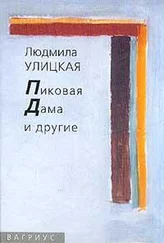
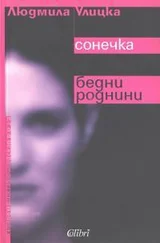

![Людмила Улицкая - Сквозная линия [litres]](/books/393468/lyudmila-ulickaya-skvoznaya-liniya-litres-thumb.webp)

